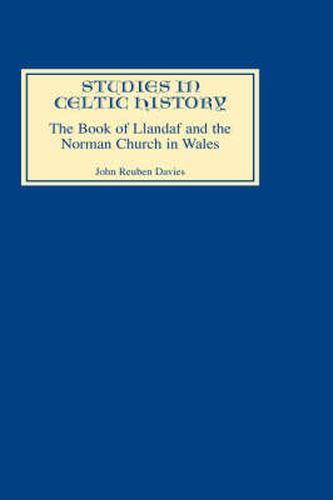Readings Newsletter
Become a Readings Member to make your shopping experience even easier.
Sign in or sign up for free!
You’re not far away from qualifying for FREE standard shipping within Australia
You’ve qualified for FREE standard shipping within Australia
The cart is loading…






This book explores the ecclesiastical and political transformation of south-east Wales in the later eleventh and early twelfth centuries. Ecclesiastical and administrative reform was one of the defining characteristics of the Norman regime in Britain, and the author argues that a new generation of clergy in South Wales was at the heart of this reforming programme. The focus of this volume is the early twelfth-century Book of Llandaf, one of the most perplexing but exciting historical works from post-Conquest Britain. It has long been viewed as a primary source for the history of early medieval Wales, but here it is presented in a fresh light, as a monument to learning and literature in Norman Wales, produced in the same literary milieu as Geoffrey of Monmouth. As such, the Book of Llandaf provides us with valuable insights into the state of the Norman Church in Wales, and allows us to understand how it thought about its past. JOHN DAVIES gained his Ph.D. from the University of Cambridge. He is currently lecturing in history at the University of Nottingham.
$9.00 standard shipping within Australia
FREE standard shipping within Australia for orders over $100.00
Express & International shipping calculated at checkout
This book explores the ecclesiastical and political transformation of south-east Wales in the later eleventh and early twelfth centuries. Ecclesiastical and administrative reform was one of the defining characteristics of the Norman regime in Britain, and the author argues that a new generation of clergy in South Wales was at the heart of this reforming programme. The focus of this volume is the early twelfth-century Book of Llandaf, one of the most perplexing but exciting historical works from post-Conquest Britain. It has long been viewed as a primary source for the history of early medieval Wales, but here it is presented in a fresh light, as a monument to learning and literature in Norman Wales, produced in the same literary milieu as Geoffrey of Monmouth. As such, the Book of Llandaf provides us with valuable insights into the state of the Norman Church in Wales, and allows us to understand how it thought about its past. JOHN DAVIES gained his Ph.D. from the University of Cambridge. He is currently lecturing in history at the University of Nottingham.